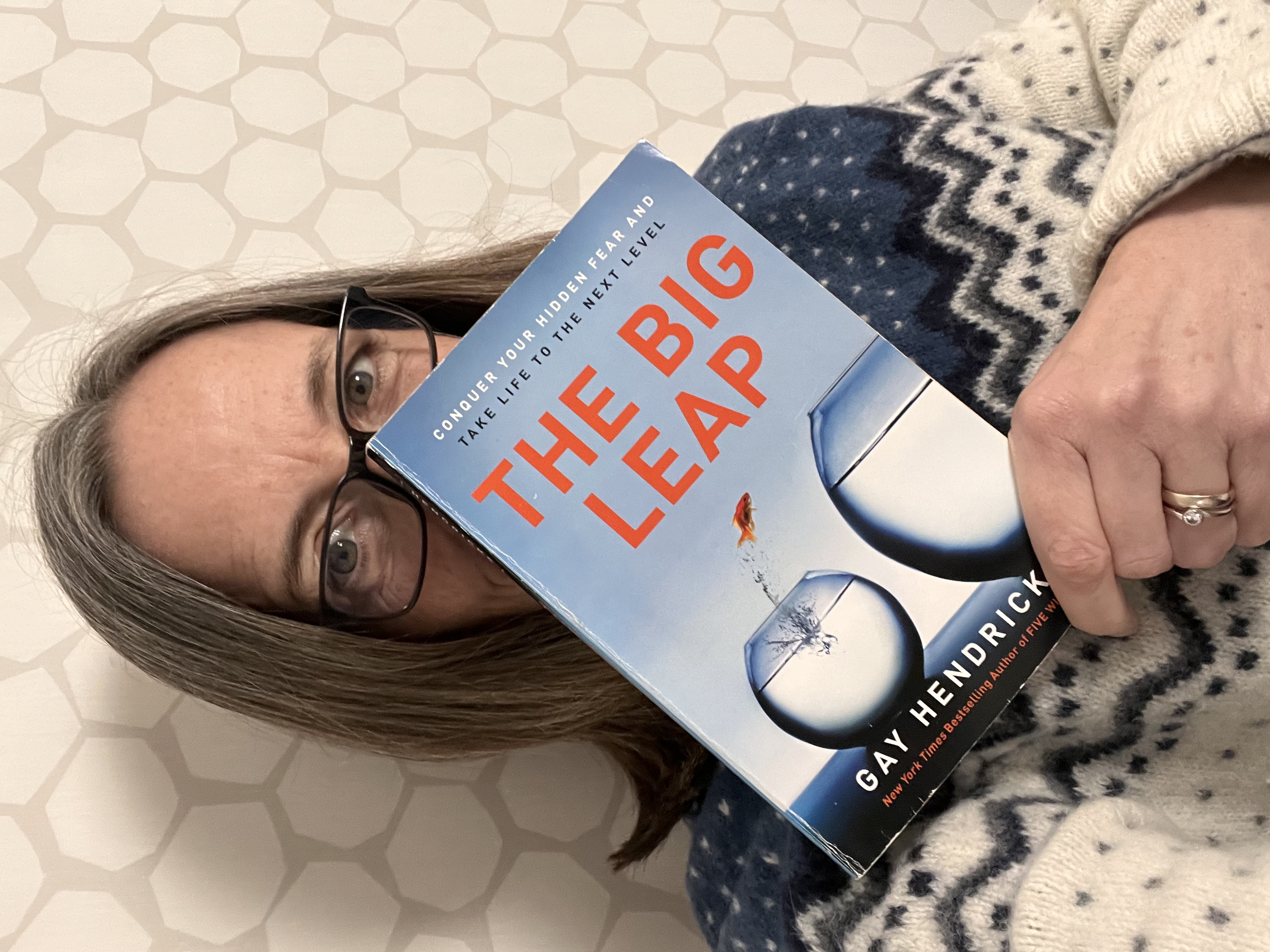The Invisible Ceiling: What’s really behind your private practice plateau

You know that feeling when you’re doing everything right - you’re showing up, posting, networking, working on your systems, training your team - but it just feels like nothing’s really shifting?
You’re not going backwards, but you’re not going forwards either.
It’s like you’ve hit a glass ceiling.
- Maybe revenue has flatlined.
- Maybe your team just aren’t growing with you.
- Maybe patient numbers have levelled off.
- Or maybe it’s less obvious - more of a feeling that you’re stuck in the same loop, doing the same things, getting the same results.
And if you’re honest, there’s a niggling voice in the back of your head saying:
“Maybe it’s me.”
You spot yourself procrastinating on things you know would move you forward. You waste time fiddling with tasks that don’t really matter. You self-sabotage big ideas. You think, why am I like this? Why does cleaning the wheelie bin out feel more appealing than building a thriving business 🫣? I know - I've been there too!
Well I want to tell you: you’re not broken. You’re just bumping into your upper limit.
The big leap we rarely talk about

The psychologist Gay Hendricks coined this term in his brilliant book The Big Leap. He describes the upper limit as the point where we unconsciously decide we’ve had enough success, happiness, or growth - and start finding ways to stop ourselves having more.
Not on purpose. Not consciously. But our brains hit a point where we go, “This is as good as it gets for me”, and we start slowing down, creating problems, or pulling back - just to keep things familiar. To keep things safe.
And that makes complete sense. Because even though we say we want more growth, more money, or more ease, more anything means change. And change can feel uncomfortable, unpredictable, or even unsafe - especially if you’ve spent years just trying to keep things steady.
I see this all the time in practice owners. The signs are easy to miss at first, because on the surface, everything still looks “fine.”
But underneath? You’ve quietly reached your self-imposed ceiling.
What a plateau actually looks like

This isn’t just about money. A plateau can show up anywhere in your practice:
So yes you might have hit a steady turnover you can’t seem to shift - no matter what new marketing you try.
But also your team might be cruising but not evolving - they’re hugely capable, but no one’s really stepping up.
Or your systems might have worked beautifully when it was just you and one associate, but now they’re creaking under pressure.
Or maybe you’re simply feeling . . . bored. Like you’ve outgrown your own business.
The frustrating part? You can’t quite explain it. You’re not lazy, and you’re definitely not stupid. You’ve worked hard to get here. So why does it feel like pushing through treacle every time you try to move things on?
Here’s what I believe:
Most plateaus don’t happen because of the market, the economy, or your patients. They happen because of a limiting belief.
And that belief might be conscious - something you outwardly tell yourself regularly. Or it might be buried deep in your subconscious, quietly pulling the handbrake every time you start to accelerate.
The four big belief blocks
After years of working with healthcare practice owners, I’ve seen the same four themes play out again and again.
You can usually trace every upper limit back to one (or a mix) of these:
Fear is THE big one.
Sometimes it’s fear of failure - “What if I try and it doesn’t work?”
Sometimes it’s fear of success - “What if it does work and I can't cope?”
Sometimes it’s fear of being seen - “What if people judge me, criticise me, or think I’m showing off?”
It can even be fear of upsetting people - colleagues, family, other practitioners. Fear that if you grow, you’ll somehow leave people behind.
Here’s something to ponder: All growth involves visibility. Big lottery winners will struggle to keep it totally under wraps. More success means more eyes on you, more responsibility, more risk. So the brain does what it thinks it’s supposed to - it protects you by keeping you safe where you are.
That’s why you suddenly “don’t have time” for the next step. Or you “can’t quite find the right words” for that post. Or you get busy being busy instead of being brave.
Your upper limit is fear in disguise.
The second category is all about what you believe you’re capable of.
I hear it constantly:
“I’m not business-minded.”
“I’m terrible at managing people.”
“I just don’t have the energy for more.”
“I can’t afford to outsource.”
You underestimate your own competence. Or you overestimate the complexity of what’s next.
And here’s the irony - these are often the practitioners who are brilliant clinicians. Hard-working, smart, compassionate, committed. But they hit a point where their identity as “a clinician” clashes with the new identity of “a practice leader” or small business CEO.
So rather than stretch and expand into something new, they stay small and busy doing what they already know.
It’s safer to polish what you have than to embrace something new but uncertain - even if that something would ultimately help your practice thrive and build you a richer life.

This one runs deeper than most people realise.
It’s the quiet, sneaky belief that says:
“I don’t deserve that level of success.”
“I’m not good enough to earn that much.”
“I’d feel guilty charging more.”
“People like me in our profession don’t have businesses that big.”
It’s the belief that tells you you’re supposed to struggle. That doing good work for others means sacrificing yourself a little in the process, or that to earn more you need to work harder.
And it shows up everywhere. You discount your services. You overdeliver. You stay late. You put your patients, your team, your family, your dog - literally everyone - before yourself.
Because deep down, you’ve linked worth with effort. You believe the harder you work, the more you deserve to earn more and have the right to succeed.
But that’s not how worth works.
Your value doesn’t depend on how many hours you work or how tired you are at the end of the day. You were worthy of a richer life long before you opened your practice door.
The belief that you have to prove your worth before you can have what you want, is one of the most common upper limits I see - and it’s the hardest to spot, because it’s dressed up as “being a good person.”
The tricky fourth category

There’s one more type of limiting belief that I see creeping in - and it’s a tricky one because it sounds perfectly logical.
It’s the belief that the problem is not you. You get to point the finger and blame someone or something else.
You know the kind of thing:
“This economy is really bad for business.”
“No one in my area will pay more.”
“The government doesn't care about small businesses”
“My patients don’t value preventative care.”
“There’s too much competition.”
“People just aren’t spending at the moment.”
And I totally understand your head going to those places. Sometimes those statements feel absolutely true. You can back them up with evidence and examples - and yes, external factors do play a part in how your practice feels to you.
But here’s where it gets tricky: when those beliefs start becoming absolutes.
When “blimey things feel tough right now” slowly morphs into “there’s no point me trying.”
That’s when a perfectly reasonable observation turns into a self-fulfilling prophecy.
Because the moment you decide the external world holds all the power, you give up your power to influence change and stop looking for what’s still possible within your control. You stop trying new things. You stop stepping outside your comfort zone. You stop dreaming of a different future.

I’ve seen brilliant practitioners talk themselves out of opportunities - refusing to raise prices, stop their promotional marketing, shelving growth plans, or ideas for new services - all because they’ve convinced themselves “people round here won’t go for it.”
Sometimes that’s true for a few. But often it’s not.
Often, there are plenty of people who would go for it - if you believed they would, if you showed up with that energy, and if you communicated your value clearly enough.
So yes, the world has its challenges. But the question to keep asking yourself is:
Am I responding to reality - or to my belief about reality?
One keeps you small. The other keeps you moving.
So what do you do with all this?
First, take a breath. This isn’t about judging yourself or adding more things to your “to do” list.
It’s about noticing - awareness is the trigger for change.
When you spot yourself hesitating, stalling, or self-sabotaging, ask: What limiting belief might be behind this?
Is it fear? Capability? Worthiness? Or something else?
Once you name it, for what it is then you can work with it. That’s the start of breaking through your self imposed ceiling.
And yes, you might still need better systems or smarter marketing. But none of that will stick if the person implementing it doesn’t believe they’re capable, ready, or worthy of more.
Breaking your own ceiling

I’m not going to pretend there is a quick fix, or that this is quick work. It’s not. But it is possible, and if you take the time and make the effort to break through your own glass ceiling it will be amazing.
You can raise your upper limit. You can learn to feel safe with more success, more income, more ease.
In The Big Leap, Hendricks talks about finding your “Zone of Genius” - the space where you do the work you’re best at, and everything starts to flow. But to get there, you have to fight through discomfort, and question the stories you’ve been carrying for years, probably decades.
That’s the work I do every day with practice owners - helping them spot their patterns, challenge the beliefs keeping them small, and gently raise their own ceiling so they can breathe more easily again and start to create change and momentum in their practice.
Because that plateau you’re sitting on? It’s not the end of the road. It’s just a pause, while you gather yourself and reflect on the vision you are working towards, before your next big leap.
And if this has struck a chord - if you know you’re the one holding the handbrake - my Momentum Mindset Audit was created exactly for you.
It’s a short, powerful programme that helps you dig into your own beliefs, spot where your upper limit lives, and start re-setting that internal thermostat so you can finally move forward with clarity and confidence.
You can take the Momentum Mindset Audit HERE
Final thought
I believe that almost every practice owner hits this point, and often multiple times in their career. The good ones don’t try to avoid it - they learn to recognise it, intentionally work through it and motor on, until the next ceiling appears - and it does!
So if you’ve been stuck for months (or years) wondering why you can’t seem to push past a certain level - maybe nothing’s wrong with your strategy or your clinical skills. Maybe it’s just time to look a little closer to home.
You’re not lazy. You’re not broken. You’ve just hit a personal upper limit 🙃.
And once you see it for what it is - you can start breaking through it - I promise you it is worth the time and effort
Thank you soooo much for taking the time to stop by my healthcare marketing blog today. I really hope you found value in spending some time here today.
I’d be so grateful if you could spare me just another 5 minutes to share your thoughts or questions in the box at the end of this page. What are you going to do differently now in your private practice?
Oh, and please use the social share buttons if you think other people you know might benefit from seeing this.
Until next time.
Thank you

Jill Woods
Healthcare Marketing Specialist
Founder of Practice Momentum



